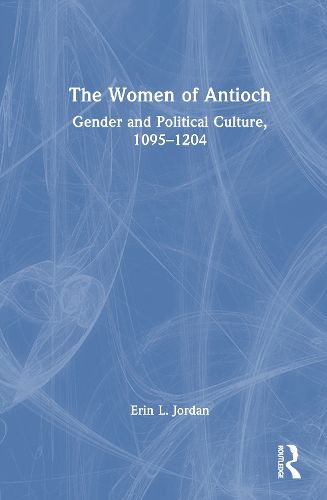Readings Newsletter
Become a Readings Member to make your shopping experience even easier.
Sign in or sign up for free!
You’re not far away from qualifying for FREE standard shipping within Australia
You’ve qualified for FREE standard shipping within Australia
The cart is loading…






The Women of Antioch is both a biography of four women-Constance, Alice, Constance II, and Maria, all connected through marriage or birth to the crusader principality of Antioch-and an analysis of the political cultures within which they maneuvered, including eleventh-century France, Norman Italy, Antioch and Byzantium.
The book's comparative perspective facilitates the discernment of differences and commonalities in these women's experiences, identifying elements conducive to their exercise of authority as well as limitations they encountered. Its insight into the intersection of gender and political culture demonstrates how, at certain times and places, female rule was so frequent and widely accepted that it was not viewed as an aberration in the system of governance, but rather as a safeguard ensuring its ability to function. This is especially evident in the volatile regions of Norman Italy and the Latin East, which witnessed unusually high rates of male mortality and extended captivities. While their motives differed, all four women were prepared to fight for what they perceived to be their right to power.
This book will appeal to scholars interested in women, gender and political culture, as well as the history and politics of the Latin East.
$9.00 standard shipping within Australia
FREE standard shipping within Australia for orders over $100.00
Express & International shipping calculated at checkout
The Women of Antioch is both a biography of four women-Constance, Alice, Constance II, and Maria, all connected through marriage or birth to the crusader principality of Antioch-and an analysis of the political cultures within which they maneuvered, including eleventh-century France, Norman Italy, Antioch and Byzantium.
The book's comparative perspective facilitates the discernment of differences and commonalities in these women's experiences, identifying elements conducive to their exercise of authority as well as limitations they encountered. Its insight into the intersection of gender and political culture demonstrates how, at certain times and places, female rule was so frequent and widely accepted that it was not viewed as an aberration in the system of governance, but rather as a safeguard ensuring its ability to function. This is especially evident in the volatile regions of Norman Italy and the Latin East, which witnessed unusually high rates of male mortality and extended captivities. While their motives differed, all four women were prepared to fight for what they perceived to be their right to power.
This book will appeal to scholars interested in women, gender and political culture, as well as the history and politics of the Latin East.